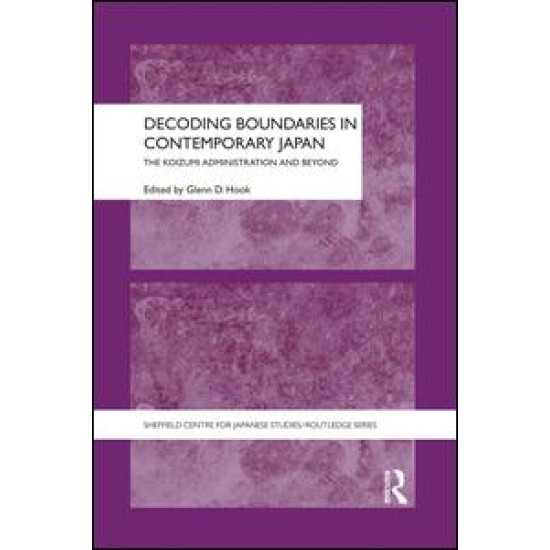
-20 %
Decoding Boundaries in Contemporary Japan
The purpose of this book is to illuminate the changing nature of contemporary Japan by decoding a range of political, economic and social boundaries, with a focus on the period following the inauguration of Prime Minister Koizumi Junichiro’s administration (2001—6). A rapid turnover of prime ministers followed Koizumi—Abe Shinzo (2006--7), Fukuda Yasuo (2007--8) and Aso Taro (2008—)—but the transformation set in motion through his promotion of a more proactive role for Japan internationally, and the implementation of ‘structural reforms’ domestically, set the direction for future administrations. _x005F_x000D_
The central argument of the book is that, in order to achieve the twin goals of greater international proactivity and domestic reform, the government and other actors supporting the new direction for Japan pushed forward by the Koizumi administration needed to take action in order to destabilize and reformulate a range of extant boundaries. This task was achieved by deploying material as well as normative resources, including the production of new discourses about the way these resources should be deployed.
₹2,643.10
₹3,303.88

















